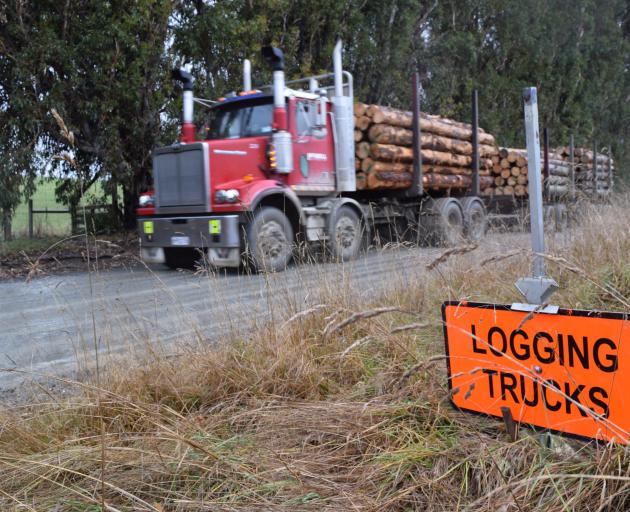
The log price is closely related to the export market and Chinese prices are back, as Covid-19 plays havoc with shipping and port availability to escalate freight charges.
Farm Forestry Association president Graham West said farm foresters had eased back on harvesting.
"The higher demand for timber [locally] is not flowing through to domestic log prices very much. The log price in New Zealand is heavily influenced by the export log price with 55 to 60% of our logs going overseas, and that price in recent months has dropped quite a lot."
The tight domestic supply situation was being influenced by Covid-19 and sawn timber was still being sent to Australia, he said.
"That’s still going on, so the big mills have a ready market for sawn timber, but there’s not the [price] link you would think there would be due to this shortage of timber. It’s ironic, isn’t it? We are reading more of the downturn in prices in China and that’s connected to the shortage of ships and shipping prices are going up and the returns are listing."
Farm foresters saw this as just one of many cycles in export logs over the past 40 years, he said.
Forestry was a flexible crop and owners tended to stop cutting down trees and just let them keep on growing when prices went down, he said.
Export log prices have returned to below the five-year average after "extremely good" returns in the past three years.
The dip in log returns hasn’t stopped landowners from planting more trees — about 40,000ha nationally over winter.
There’s a lag between planting and market shifts because it takes a while to get seedlings, and partly this is being driven by the price of carbon. Farmers also like trees as a "safe deposit" in case of a drought or farming returns going down.
Most of the trees going into the ground are pine, because redwoods, eucalyptus and cypresses are more difficult and expensive to grow.
Mr West said New Zealand was arguably too reliant on China.
"We have a national issue and strategically we shouldn’t be so dependent on China for this commodity. We really need to develop a domestic processing capacity and that’s looking positive as we shift from oil and coal to wood and it plays a greater part in our lives."
Cardboard alternatives were being explored to replace plastic packaging and that would only increase planting.













